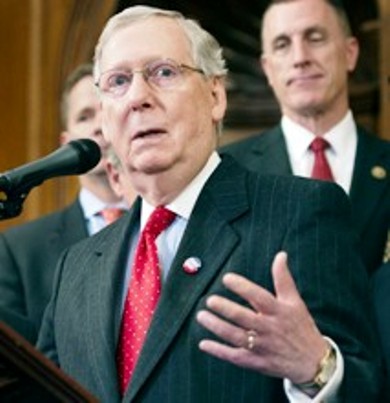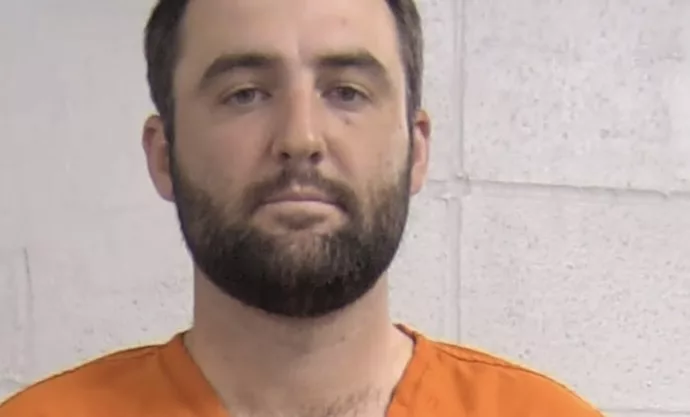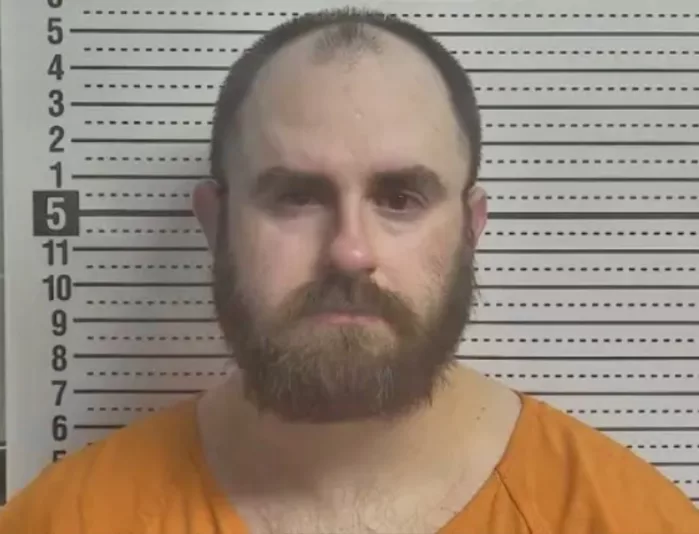
WASHINGTON, DC – U.S. Senate Majority Leader Mitch McConnell (R-KY) praised Senate passage of the landmark opioid legislation today, which contains two bills he authored and introduced. The first is the Comprehensive Addiction Recovery through Effective Employment and Reentry (CAREER) Act, which expands grants and targets funding for treatment, transitional housing, job training and placement services to help individuals in recovery find their footing and maintain sobriety. The second is the Protecting Moms and Infants Act, which will refine federal efforts to combat the effects of opioids on expecting mothers and their unborn children. This landmark opioid legislation now goes to President Trump for his signature.
“I am proud that my CAREER Act, which focuses on addiction’s impact on American workers and their families, and my measure to help the increasing number of vulnerable infants born dependent on opioids are included in this comprehensive bill to fight back against the scourge of addiction through prevention, enforcement, and treatment efforts. Community, health-care, and business leaders agree that stable employment and transitional housing are vitally linked to helping individuals in recovery maintain long-term sobriety,” Senator McConnell said. “A comprehensive crisis demands a comprehensive solution, and that’s exactly what this landmark legislation is. First, this legislation will help cut off the opioid crisis at its roots. It will stop more drugs at the border, improve interstate monitoring, and encourage prescription reform. It will encourage recovery by authorizing more resources for state and local responders, better access to care for patients, and more support for the families and caregivers of those affected.”
“The landmark bill passed by the U.S. Senate is a comprehensive step forward to help stop the tragedy of addiction,” said Van Ingram, executive director of the Kentucky Office of Drug Control Policy. “Kentucky families are on the front lines of the battle against opioid and substance abuse, and we are grateful for the help from the federal government to respond. There are many innovative strategies in this bill that I believe can make the difference in our fight. We appreciate Senator McConnell’s tireless efforts to save families from the heartbreak of abuse. His leadership on this issue not only sent this legislation to the president’s desk, but has also secured unprecedented resources that prevention advocates, treatment professionals, and law enforcement officials need to save lives.”
“Kentucky’s business community is acutely aware of the state’s growing opioid epidemic and recognizes it is more than a public health or law enforcement issue. The crisis has become a workforce issue and employers are feeling its impact firsthand,” said Dave Adkisson, President & CEO, Kentucky Chamber of Commerce. “We commend Senator McConnell for stepping up and providing leadership by introducing the CAREER Act, which provides patients in recovery the resources they need to return to healthy, productive lives and re-enter the workforce.”
“We thank Senator McConnell for his vision and leadership in crafting the CAREER Act – a bill that will authorize grants for entities that help individuals in recovery from a substance use disorder transition into the workforce,” said Anthony Zipple, CEO of Centerstone Kentucky. “At Centerstone, we believe that anyone who desires to work can and should do so. For individuals recovering from substance use disorders, in particular, employment can play a critical role in maintaining a healthy lifestyle. Work offers a predictable means of meeting financial obligations, a way of earning the respect of colleagues, and an opportunity to thrive in safe and sober environments. The CAREER Act will play a meaningful role in extending those in recovery a real chance to experience stability and the long-term advantages of gainful employment.”
“After receiving treatment for addiction, many people struggle to find housing and employment, increasing the risk of relapse. Leader McConnell’s work on the CAREER Act demonstrates an awareness of these challenges and a commitment to easing them,” said Dr. Tom Ingram, CEO of Stepworks Recovery Centers. “The CAREER Act assists us at Stepworks Recovery Centers in supporting our clients beyond the first 30 days; it helps us secure them on a path to longer and more successful recovery and reintegration. Through the crafting of this legislation, and the larger package of opioid legislation passed today, the Leader has been inclusive and committed to addressing the challenges that parallel and accompany our nation’s struggle with opioids and other drugs.”
“Senator McConnell’s leadership has been instrumental in ensuring this legislation includes recovery support services, such as his CAREER act, as well as increasing access to evidence-based addiction treatment,” said Dr. Kelly Clark, President of the American Society of Addiction Medicine based in Louisville, Kentucky.
Earlier this year, Senator McConnell introduced the CAREER Act, which will support transitional housing options for those in recovery while they work to secure a longer-term living arrangement. It also encourages local businesses and treatment groups to form partnerships to help individuals in recovery find and maintain employment following treatment. He also introduced the Protecting Moms and Infants Act. This legislation builds on Senator McConnell’s 2015 bill, the Protecting Our Infants Act, which was the first federal law to specifically address prenatal opioid exposure. The measure requires the Department of Health and Human Services to issue a report regarding the implementation of the strategy for treating neonatal abstinence syndrome that was required by passage of the Protecting Our Infants Act. It also authorizes an increase in funding for a competitive federal grant that assists organizations with addressing this particular challenge within the broader opioid crisis.
Release from Senator Mitch McConnell’s Office








